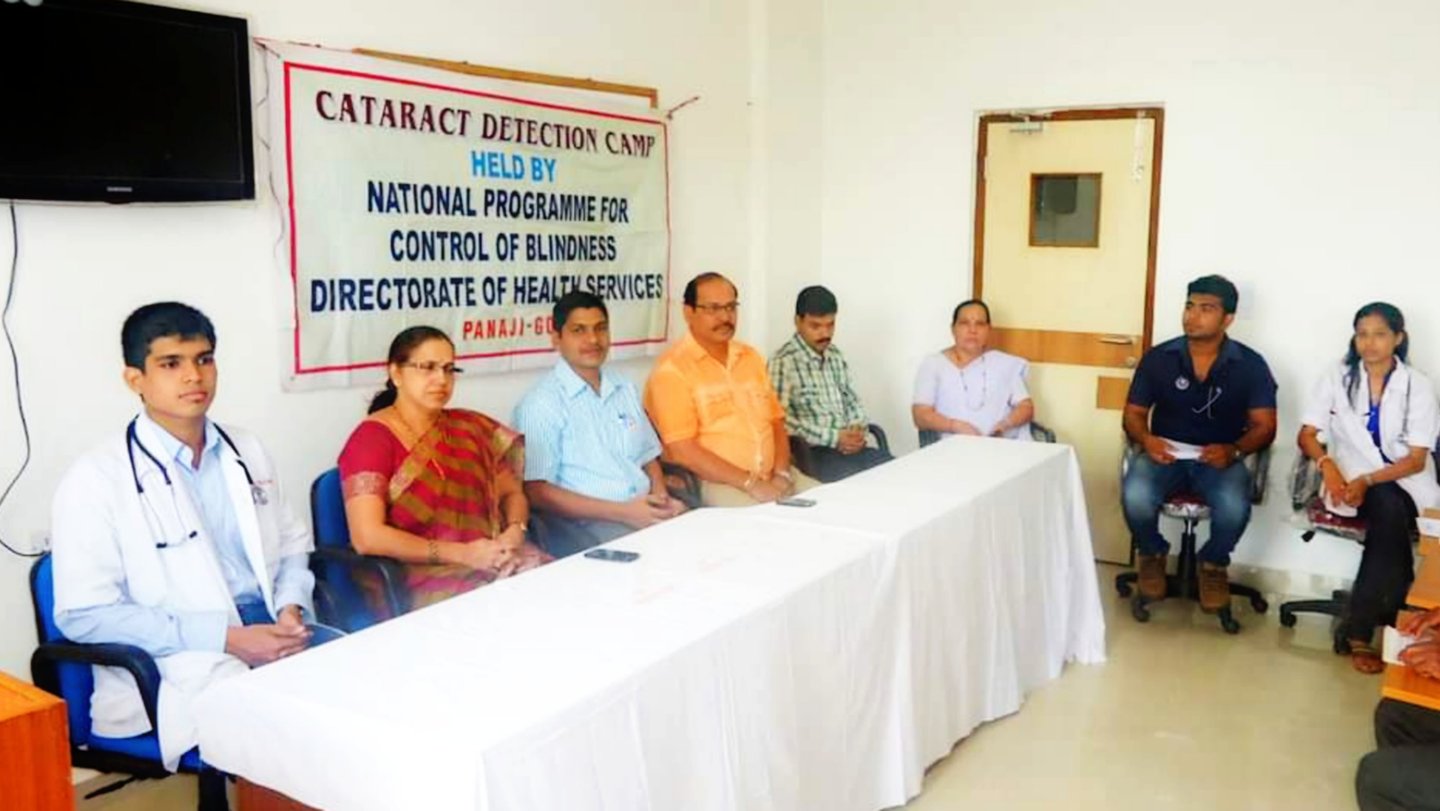Dr V. W. Verlekar
Strategies for Maintaining Clear and Healthy Vision
Enhancing Vision : Proven Strategies to Improve Your Eyesight
OPTHALMOLOGY
Dr V. W. Verlekar
4/25/20244 min read


Introduction:
In today's digital age, where screens dominate our daily lives, maintaining good eyesight is more important than ever. From smartphones to computers, our eyes are constantly subjected to strain, leading to various vision issues. However, the good news is that there are several natural methods to enhance and preserve your eyesight. In this article, we will explore effective strategies to improve your eyesight without resorting to surgery or corrective lenses.
A)Nutritious Diet:
A balanced diet rich in nutrients plays a pivotal role in maintaining optimal eye health. Incorporate foods high in vitamins A, C, and E, as well as omega-3 fatty acids, into your meals. Carrots, spinach, kale, salmon, and nuts are excellent choices. These nutrients help combat age-related macular degeneration and cataracts, two common eye conditions.
1. Vitamin A:
Vitamin A is essential for good vision as it helps the retina function properly. Include foods like carrots, sweet potatoes, spinach, and kale in your diet as they are rich sources of vitamin A. These foods also contain antioxidants that protect the eyes from damage caused by free radicals.
2. Vitamin C:
Vitamin C is another important nutrient for maintaining healthy eyes. It helps in preventing age-related macular degeneration (AMD) and cataracts. Citrus fruits like oranges, lemons, and grapefruits are excellent sources of vitamin C. Other fruits like strawberries and kiwi, as well as vegetables like bell peppers and broccoli, are also rich in this vitamin.
3. Vitamin E:
Vitamin E is known for its antioxidant properties, which help protect the eyes from oxidative stress. Nuts, seeds, and vegetable oils are great sources of vitamin E. Incorporate foods like almonds, sunflower seeds, and olive oil into your diet to ensure an adequate intake of this vitamin.
4. Omega-3 Fatty Acids:
Omega-3 fatty acids are beneficial for eye health as they help reduce the risk of dry eyes and prevent age-related macular degeneration. Include fatty fish like salmon, tuna, and sardines in your diet as they are rich in omega-3 fatty acids. Vegetarian sources of omega-3 include flaxseeds, chia seeds, and walnuts.
B) Eye Exercises:
Regular exercise is not only good for your overall health but also for your eyes. engaging in physical activities improves blood circulation, including to the eyes, which helps nourish the optic nerve and maintain good vision.
Performing regular eye exercises can help strengthen the eye muscles and improve focus. One simple exercise is to focus on a distant object for a few seconds, then shift your focus to a nearby object. Repeat this exercise multiple times to improve your eye's ability to switch focus.
1.Blinking:
Blinking is a natural way to keep your eyes lubricated and prevent dryness. When staring at a screen or concentrating on a task, we tend to blink less frequently. Make a conscious effort to blink regularly to keep your eyes moist and reduce eye strain.
2.Palming:
Palming is a relaxation technique that helps relieve eye strain. Rub your palms together to generate heat and then place them gently over your closed eyes. Relax and breathe deeply while keeping your eyes covered. This technique can be done for a few minutes whenever your eyes feel tired or strained.
3.Eye Massage:
Massaging the area around your eyes can help improve blood circulation and reduce eye fatigue. Use your fingertips to gently massage the temples, eyebrows, and the area around the eyes in a circular motion. This can be done for a few minutes each day to relax the eye muscles.
C)Protective Measures
Protective measures in addition to a healthy diet and regular exercise, can help prevent eye damage and maintain good eyesight.
1. Limit Screen Time:
Excessive screen time can strain the eyes and cause digital eye strain. Take regular breaks from screens, and follow the 20-20-20 rule: every 20 minutes, look away from the screen and focus on an object at least 20 feet away for 20 seconds.
2. Wear Sunglasses:
UV rays from the sun can damage the eyes and increase the risk of cataracts and age-related macular degeneration. Wear sunglasses that provide 100% UV protection whenever you are outdoors, even on cloudy days.
3. Use Proper Lighting:
Ensure that your workspace and reading areas are well-lit to reduce eye strain. Avoid harsh, direct lighting and position your computer screen or reading material at a comfortable distance and angle.
4. Get Regular Eye Check-ups:
Regular eye check-ups are essential for detecting any vision problems early. Visit an eye care professional at least once a year to monitor your eye health and address any concerns.
D)Proper Hydration:
Staying hydrated is essential for overall health, including eye health. Dehydration can cause dry eyes, leading to discomfort and blurred vision. Make it a habit to drink plenty of water throughout the day to keep your eyes adequately moistened and lubricated.
E)Adequate Sleep:
Quality sleep is crucial for overall well-being, including eye health. During sleep, your eyes undergo repair and regeneration, ensuring they function optimally. Aim for 7-8 hours of uninterrupted sleep each night to prevent eye fatigue and maintain sharp vision.
Conclusion:
Taking care of your eyes is as crucial as maintaining overall good health, especially in today's digital world. By following a nutritious diet, engaging in regular exercise, and taking protective measures, you can enhance and preserve your eyesight naturally. Remember to give your eyes regular breaks from screens and seek professional advice if you experience any persistent vision issues. With these proven strategies, you can enjoy clear and healthy vision for years to come.











